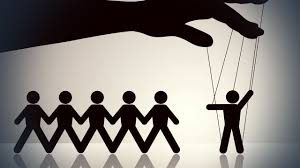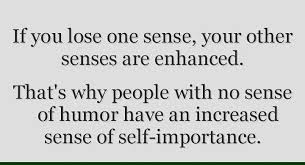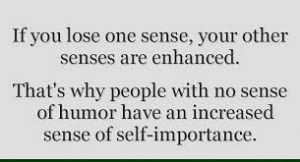Narcissism is a very popular subject at the moment. It is for a good reason – it is extremely prevalent in Western society. Some speculate that it has been culturally fostered from about the 1960’s onwards as the prevalent question has always been “How do I get what I want?” Rather than “What contribution can I make, and what role am I best suited for in society?”
In a very limited picture the traits of a narcissist look like:
They completely lack empathy and compassion so they are unwilling to recognise or identify with the feelings and needs of others (even those close to them), they may even gloat, laugh and take pleasure in the pain and problems of others.
- They are amoral and lack conscience if they believe that they can get away with something that benefits them in some way, even if it is immoral, illegal or will hurt someone, they will do it.
- They have no remorse even if they get caught they don’t express any genuine remorse for what they have done. It will always be someone else’s fault (as narcissists are never wrong). They will never admit to being guilty of something, the closest that they come to guilt is “they made me do it”. They will not apologise or try to make amends for the hurt that they caused or if they do it will be as a means to an end and completely insincere.
- They are hyper sensitive to criticism the slightest form of criticism, including constructive, will be considered to be a full on attack by the narcissist. They can attack back in a vicious manner, hurling abuse in a most visceral way or they can just storm off and sulk. Usually they will try to punish the person who criticised them at some later date.
- They are pathological liars they will lie about anything and everything even when the truth would serve them better. Their lies are always intended to make them look better or others look bad. Anything that a narcissist says should not be believed until it is backed up from a reliable source, or seen through their actions rather than their words.
- They are full of their own self-importance and are frequently extremely critical and judgemental of others to buoy up their own self image
- They live in a fantasy world in which the constant narrative is that they are the protagonist, the one who saves the day, invents a cure for cancer etc. and expects recognition of their brilliance even if the evidence is simply not there. Alternatively, they can play the role of the victim to garner sympathy from others, the role they play will be determined by the “audience” that they have.
- They are revisionists anything that they might have said or done that might draw criticism (at whatever level) is immediately denied and projected onto some other factor. Someone else, the weather, politics etc. Nothing is ever their “fault” or responsibility.
- They believe that they are superior to others and that they should only associate with other people or institutions that they deem as suitable for their special status.
- They constantly need to be the centre of attention and demand excessive admiration.
- Have a ridiculously strong sense of entitlement “I want it therefore you have to/need to give it to me” with totally unreasonable expectations of people conforming to their “needs” and giving them favourable treatment or recognition this could be in an intimate relationship, in a social circle or in a restraint or bar. They will never treat others how they expect to be treated themselves – unless they think that there is something in it for them. Status, adoration or money.
- They are ruthless and will be exploitative of others and constantly take advantage to get what they want.
- They are envious and jealous of others but they invert it and frequently claim that others are jealous of them.
- They are madly competitive everyone and everything is a contest to a narcissist, it can often be extremely bizarre and is always unhealthy. They only play to win, not to have fun or to engage with others. In fact, narcissists cannot play. For them it is one up-manship all of the time, they are petty and will plot for days or weeks to “win”. If they feel like they are losing at something they will become more aggressive and competitive, even if it is to their own detriment. Every conversation with a narcissist is a competition, so they will happily get very aggressive in a discussion over something trivial just to make sure that they “win”
- They are bitter and will show contempt for others, they constantly complain that people are not doing enough for them and will criticise to the point of being abusive. They expect other people to make things better for them as they have no intention of putting in the work themselves, after all they “deserve” it.
- They are very negative and will rarely have anything good to say about anyone or anything, unless they idolise a person due to their social status or wealth, see the person as useful or they feel that they can take credit for something someone else has done.
- They are extremely angry. Anger and rage are the driving force behind all narcissistic actions, which is why the can go into full blown rage in a matter of seconds if someone threatens them.
- It is important to note that it is sometimes very hard to spot a narcissist until they are under threat as they can be charming, engaging, affable, generous and amusing. It is only when they feel under threat of some sort that their true nature raises its head or their public mask drops.
- Narcissists take themselves extremely seriously and expect you to do so too. They will happily mock and sneer at everyone around them – but it is not okay to do it back to them it will end in narcissistic rage or an infantile sulk.
- They will gossip with malicious intent but get extremely paranoid if they hear that someone was talking about them in their absence and will try to extract the precise details of any conversation that has been had about them.
- Narcissists want to be known for their individual ability rather than their ability to work as part of a team/community and frequently chase after fame and positions of power.
Once you think that you might be dealing with a narcissist it can take a while for the penny to drop. As you educate yourself you will be able to penetrate through the layers of their crazy behaviour. This can take a while and every time you think you have it all worked out, you find another layer of “stuff” that you never even thought about. Narcissists are very hard to understand at the beginning because you think “why would someone behave like that?”, “what on earth is going on in their head?”. This is particularly true with spiteful or vindictive narcissists. You will ask yourself “how can they align themselves with someone else and then punish them if they do not like what they see?” It absolutely doesn’t make sense- it is just what they do. A narcissist is his/her own worst enemy, they are generally pretty miserable people and they spend their lives trying to control others rather than tapping into themselves and doing work getting to enhance their own emotional development. When you educate yourself about narcissism you will find that their behaviour is alarmingly repetitive, once you recognise the patterns you start to see it manifesting in a myriad of different places (in your own family, the media, in CEOs, the church, politics etc.). When people describe the behaviour of narcissists, it is as though they have all read the same phrase book. You might find that you too were using phrases such as “anything you say can and will be used against you in evidence”, “walking on eggshells” or that their behaviour is just infantile, all before you fully understood what Narcissistic Personality Disorder is. Knowing about narcissism will not necessarily enable you to predict their behaviour (although it might) but it will help you to “understand” it to the extent that you will stop looking into yourself and wonder “what did I do wrong?”, “why are they being like that to me?”
It is important to note that we all possess a certain amount of narcissism and it presents on a spectrum. We need to be a bit narcissistic for our survival. It is only when people display very high levels of narcissism that it becomes a problem. Like all mental health issues, it is never cut and dry. Narcissism cannot be looked at under a microscope to see what stage on the spectrum a person is. Sometimes they can be delightful and they can continue to be so, so long as the feel admired, have enough money and feel in control/powerful. Those are the currencies that they understand. Take these away and the true narcissist will raise its ugly head.
The values that other “normal” people have such as relationships,empathy, compassion, healthy communication, intimacy, love and connection mean nothing to them. They may pretend that they do, but when put to the test, their mask falls.
Once you discover that you are involved with a narcissist (a family member, an intimate relationship, friend or a work-colleague) you will probably have an epiphany, you will realise that there are very strong patterns in their behaviour that is not limited to you and “your” narcissist. You will feel enlightened and might become a little obsessed with finding out more. When you realise that you have had or are having a relationship with a narcissist you will also realise that it is just the first step. There is a lot of work ahead of you, especially if you are in an intimate relationship or it is a family member. It is very daunting. However, there are many genuine, concerned, knowledgeable and caring people (who have had the same experience that you have had) and want to share all that they have learnt without judgement and with compassion.
When you realise that you have been narcissistically abused it will be the difference between living a conscious life or an unconscious one, the former is much harder to begin with, but ultimately infinitely more rewarding and adds a lot more meaning to the life around you. It might not be a bed of roses but it expels a lot of the confusion and the gut wrenching discomfort. The world (and that is not an exaggeration) appears in a much different light, perceptions shift, relationships shift, knowledge shifts and the people who you thought were your nearest and dearest sometimes become marginalised and the really important players in your life suddenly appear. You might have even known them for a long while, but distraction, white noise or prejudice focused you on another trajectory.
If you are the child of narcissistic-parents, you will have probably built up a strong resistance to facing up to this problem. The reason for this is that no one wants to admit to themselves that their parents a) do not love or have your best interests at heart (they don’t) and b) that narcissists have the emotional intelligence of a child, that is very scary for a real child when they are still a child themselves to realise that “grown-ups”, not only their parents are less mature than they are. So numerous coping mechanisms will have been put in place to block this fact from yourself. The result of a narcissist being so infantile is that they relate everything back to themselves and their needs. I mean everything. So if it means hurting their own off spring they will do it, if it means that they have to lie they will do it, if it means that they have to be really nasty and walk all over other people they will do it, break promises they will do it. It can also lead them to perform criminal acts.
If you are not a high spectrum narcissist, it is really difficult to understand the motivation behind their actions. There is no rationale behind how they behave, they are acting out, out of a place of extreme anger, a lack of identity and the inevitable insecurity and vulnerability that goes along with that. They live their lives in a constant state of threat/fear. They have created a false persona, one which they project outwards as who they want to be, not who they really are and are constantly fearful that they will be found out, as they themselves know that they are a fraud. Because it isn’t real, they have to keep patching it up and changing it according to the company that they are keeping. This persona has no authenticity or genuineness so they have to fiercely protect their fragile and flimsy image. It sounds ridiculous but a narcissist in the presence of six year olds can behave like a six-year-old, fighting over toys and calling each other names etc.
It is very possible that the narcissist suffered some early childhood trauma and disassociated themselves from themselves from that time on. Instead of being themselves, they created another more “acceptable” public image, one that they could live with (and change if they thought it necessary), by the time they become adults they have put so many barriers up so that the pain that the original hurt child experienced will never be revisited.
Narcissism often runs in families and comes chugging down the line through the generations. The “creation” of narcissists comes from people who are treated on both extremes of the “parenting” spectrum, that is to say excessively neglected which totally traumatises a child or excessive cosseting which denies the child any decision making capacity or independence therefore “makes” them expect to be spoon fed by everyone.
The word “victim” is often used in the literature about narcissism, if you have had a relationship with a narcissist – you have been a victim. In common parlance the word victim has very negative connotations, the implication is that weak and stupid people are victims and that somehow you did something to deserve it. This is most obvious in the case rape victims, “did you see what she was wearing? She was asking for “it”. However, the real meaning of victim means that someone deceived, cheated, or hurt you and as a result you have suffered. Society will also tell us that we are responsible if someone does us wrong, especially a subject of authority, it is those very people in positons of authority that perpetuate the myth. If someone displays narcissistic behaviours to you, it is really important to take note because the impact of narcissistic abuse is devastating and can include complex post-traumatic stress disorder (CPTSD), depression, low self-esteem, addiction and even suicide. Anyone can be duped by a narcissist because they are such good actors and can appear to be charming, funny and engaged, so it is really important to be on high alert when you meet someone new, if you feel worse rather than better after having been in someone’s company or if you just feel confused about someone WALK AWAY.








 Empathy a narcissist will always be looking for an empathic person. This is because they are easier to manipulate. It will not even occur to an empath that a person would lie and deceive them (unless they have been hurt by someone before) at the same time as professing their love.
Empathy a narcissist will always be looking for an empathic person. This is because they are easier to manipulate. It will not even occur to an empath that a person would lie and deceive them (unless they have been hurt by someone before) at the same time as professing their love.